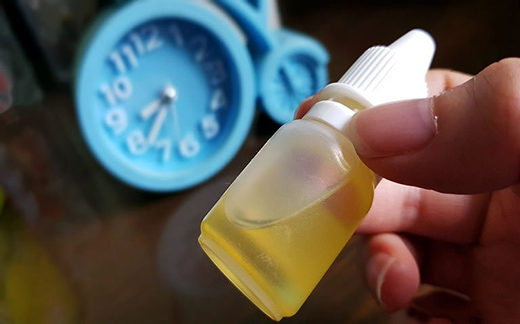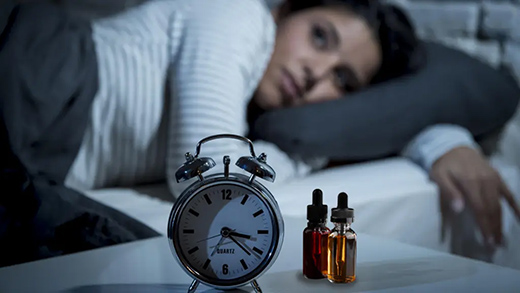What is the Best Time to Take CBD Oil?
What is the Best Time to Take CBD Oil?

Many studies have shown that cannabidiol, or CBD, can relieve anxiety, insomnia, joint pain, and headaches, among other conditions. The effects of CBD oil can last a long time; the best results are achieved when taken at the right time of day.
But when is the best time of day to take CBD oil?
Well, the answer to this depends mainly on the symptoms or illness you are using it to treat. Fortunately, with a bit of thought, CBD oil can help you feel better almost every day.
When should we use CBD oil to relieve insomnia?

Suppose you're interested in using CBD oil to help with falling asleep or staying asleep. In that case, you'll obviously want to wait until closer to your bedtime to take it.
However, it is essential not to wait until you are about to go to bed. You have to give the CBD oil time to absorb into your body and allow your endocannabinoid system to respond.
Keep in mind that CBD oil isn't meant to make you instantly fall asleep. It is not a narcotic or anesthetic. Instead, CBD allows your own body to create the physiological environment that leads to sleep.
Therefore, for best results, you should take CBD oil about an hour before you are scheduled to go to bed. This will allow your body to fully absorb it and promote natural, lasting peace. Setting a relaxing environment with the proper lighting or lack of in this case and maybe some soothing music can significantly aid when using CBD oil for insomnia.
When is the best time to take CBD oil to relieve anxiety?

On the other hand, you don't need to take CBD oil before bed if you're dealing with anxiety. Instead, you should try to consume it about an hour before you have to deal with a stressful situation. For example, if you struggle with social anxiety and plan to attend a party, take the CBD at least an hour before heading out.
Perhaps you want to use CBD oil to help treat generalized anxiety disorder (GAD) symptoms. In this instance, your best solution may be to take it in the morning before leaving home for the day. Since CBD oils usually last about four to six hours, you may need to take an extra dose later in the day.
The best time to take CBD oil for pain relief

If you are taking CBD oil for body pain, you should always take it as needed. If your pain is chronic, daily use of CBD may relieve your pain. If you use CBD oil to treat acute problems, such as migraine, sudden gastrointestinal attacks, or short-term discomfort from an injury, only take it when symptoms are present.
Suppose you have a chronic condition caused by inflammation, such as rheumatoid arthritis. In that case, you will need to develop a daily schedule that allows you to reap the endless benefits of CBD oil without unnecessary drowsiness.
CBD is often beneficial for people who are dealing with persistent pain. In fact, it's the number one reason given by people who use it when treating an illness. However, you should not simply use it as a substitute for professional medical care.
Discuss with your doctor how to integrate CBD into your overall treatment plan. There are also many different ways to consume CBD which should be considered. Now more than ever, medical professionals are aware of how helpful CBD can be as a tool in the pain relief toolbox.
How often should CBD oil be taken?
The effects of CBD oil usually last about four to six hours, although some people find it lasts longer. You can take more CBD overtime if necessary, but be aware of how you feel. While CBD oils aren't psychoactive, your personal body chemistry, including your endocannabinoid system, is unique, meaning that CBD oils can affect different people slightly differently. It's best to safely experiment with CBD oils at home until you find the program and dosage that works best for you. You may be interested in this article for more information on CBD dosage.
If you spend a little time thinking and aren't afraid to consult a medical professional, you'll be able to find a schedule that suits your own CBD oil use. No matter what symptom or illness you are treating, maintaining a positive attitude and a healthy lifestyle can help you recover.
CBD oil offers the extra relief they've been looking for for many people, giving them a superior quality of life and helping them manage illness without being dependant on pharmaceuticals.
